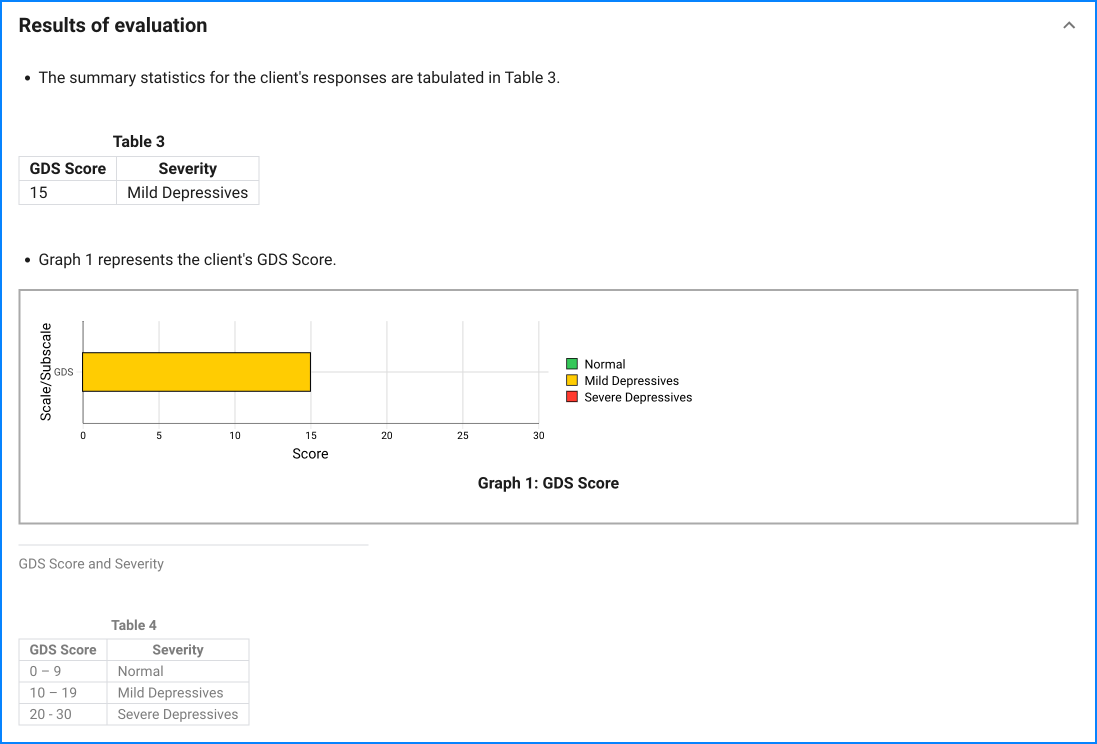Since the questionnaire relies on client self-report, all responses should be verified by the clinician, and a definitive diagnosis is made on clinical grounds taking into account how well the client understood the questionnaire, as well as other relevant information from the client.
The GDS is not a diagnostic tool. Positive results on the GDS on screening should be followed up by a clinical interview if significant levels of depressive symptomatology are found and treatment is being considered. GDS is not a substitute for observer-rated scales or indepth diagnostic interviews.
It remains to be determined if the GDS may be useful for measuring changes in the severity of depression following treatment. GDS has not yet shown to be treatment sensitive.



